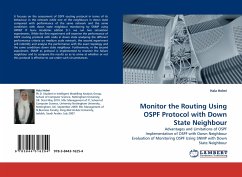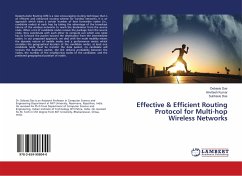With the advancement in electronics and communications, wireless networks in all sizes and structures have become prolific. Wireless ad hoc networks, in which there is no central coordination, are one of the emerging types as opposed to the classical wireless networks with base station/access point management. Sensor networks, vehicular networks, or temporary wireless networks that are setup among participants of a short-lived convention such as a business meeting are examples to wireless ad hoc networks. In some of these cases, the stations might have power constraints, such as sensors living on batteries never to be replaced. Therefore, designing protocols for these networks should take into account these requirements. In this study, we present an analytical study of the performance of a power-aware routing protocol in terms of power consumption. The CAP-SV routing protocol was proposed in a 2004 paper along with simulation results. We provide analytical verification to the orginal simulations.







